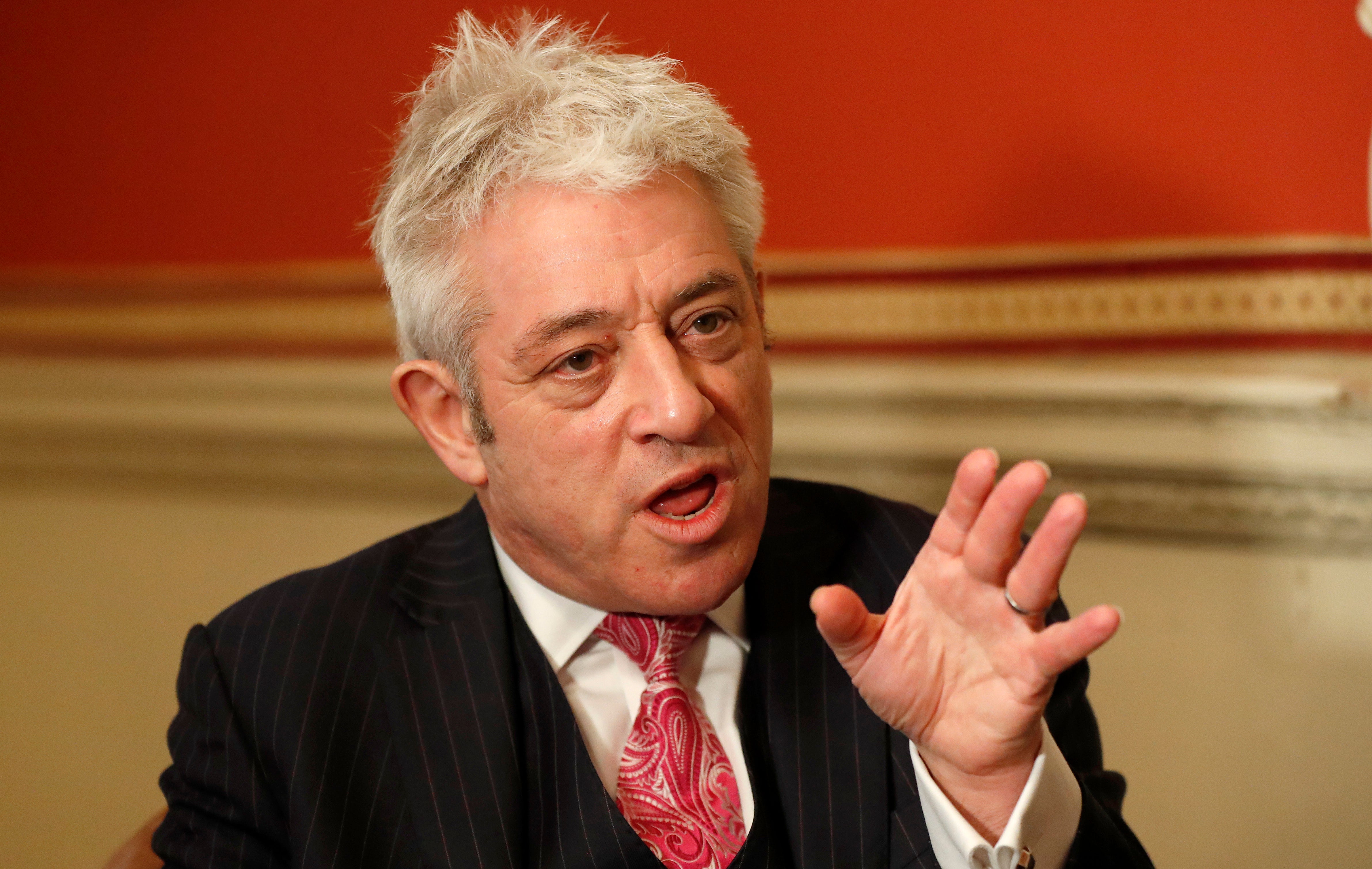John Bercow joining Labour shows that politicians don’t really care about bullying at Westminster
It is unbelievably frustrating to watch politicians be so complimentary about a man who is alleged to be a bully, writes Marie Le Conte


Should we care that John Bercow has joined the Labour party? The former speaker of the House of Commons has always enjoyed attention, and the move – announced over the weekend – felt like the last gasp of a man desperate to stay relevant.
There are rumours that he switched parties to try and finally get the peerage he clearly feels he deserves, but they are just that: rumours. According to everyone even vaguely in the know, this will not be his golden ticket to the red benches.
Labour’s leadership does not seem particularly enthusiastic about its latest recruit, and has remained silent on the topic. In another world, this would have been a once-in-a-lifetime gift to Starmer – who wouldn’t want one of the most famous former politicians in Britain to call out their old party as “reactionary, populist, nationalistic and sometimes even xenophobic”?
Sadly, it was not meant to be: at the time of writing, John Bercow remains under investigation for bullying. The accusations, which he categorically denies, are stark. His former private secretary, Angus Sinclair, claimed that Bercow responded to errors in “a way that I can only say is a form of bullying”; David Leakey, who served as black rod until 2017, described him as “intimidating, unreasonable, disproportionate”; Kate Emms, one of his aides, was signed off sick and diagnosed with post-traumatic stress disorder after less than a year working in his office.
But Bercow said he had never “bullied anyone, anywhere at any time”.
If you did not know about this, you certainly wouldn’t have found out about it by looking at the timelines of certain Labour MPs on Saturday and Sunday. “I am not surprised that my friend John Bercow has joined @UKLabour but I am delighted that he has,” posted shadow minister Karl Turner.
“I would like to congratulate and welcome our Comrade John Bercow to the Labour Party. [...] Looking forward to working alongside you”, former shadow minister Khalid Mahmood tweeted. “I am delighted that John Bercow has now joined @UKLabour”, wrote Barbara Keeley, another former frontbencher.
They were a minority, but around a dozen politicians tweeted positively about John Bercow’s move. Interestingly, two of those were the former Labour leader and his chancellor.
“As speaker John Bercow stood up for parliament during one of the most turbulent periods in British politics”, Jeremy Corbyn tweeted, “I look forward to campaigning with him for social justice and peace in the future”.
“When he was speaker, John Bercow was scrupulously fair in his treatment of Jeremy Corbyn & me & all Members in the Commons”, John McDonnell added. “He won our respect, especially for his fight to protect the rights of parliament. I wholeheartedly welcome him into the Labour Party.”
There are two points to make about this. The first is obvious: it is unbelievably frustrating to watch politicians be so complimentary about a man who faces allegations of bullying. What message does it send to the people who went public about their experience of working with John Bercow? What message does it send to the people currently being bullied in Westminster – and hoping to one day get some justice?
The second point is a bit more convoluted, perhaps. These Labour politicians did not simply welcome Bercow with open arms because it is a blow to the government; they did so because of the work he did as speaker. Former MP and current MSP Paul Sweeney made the point quite clearly, calling Bercow a “fierce defender of the rights of the House of Commons to hold an increasingly contemptuous government to account”.
It is true that the Brexit years could have gone very differently had someone else been in the speaker’s chair. How you feel about this probably depends on how you feel about Brexit itself, but it remains an undeniable fact: Bercow gave backbenchers more power than the government wanted them to have.
Is this enough to overlook the allegations made against him? Of course not – but it is surely significant that a number of MPs feel so strongly about his parliamentary record that they are willing to publicly praise him still. It is also significant that the current speaker, Lindsay Hoyle, feels the need to rebuke the government on a near-weekly basis at the moment, usually with little to no effect.
Because so much of what happens in parliament is based on unwritten or informal rules, it is often down to individuals to make sure that proceedings happen as fairly as possible. As a result, these individuals can reach unseemly and unhealthy levels of popularity – or unpopularity.
We need a parliamentary culture that recognises allegations of bullying as unacceptable, but maybe we also need a parliament that cannot be shaped by one person alone, with everything that entails.
We probably do not need to care that John Bercow has joined the Labour party, but it is worth thinking about why some Labour politicians did.
Join our commenting forum
Join thought-provoking conversations, follow other Independent readers and see their replies
216Comments